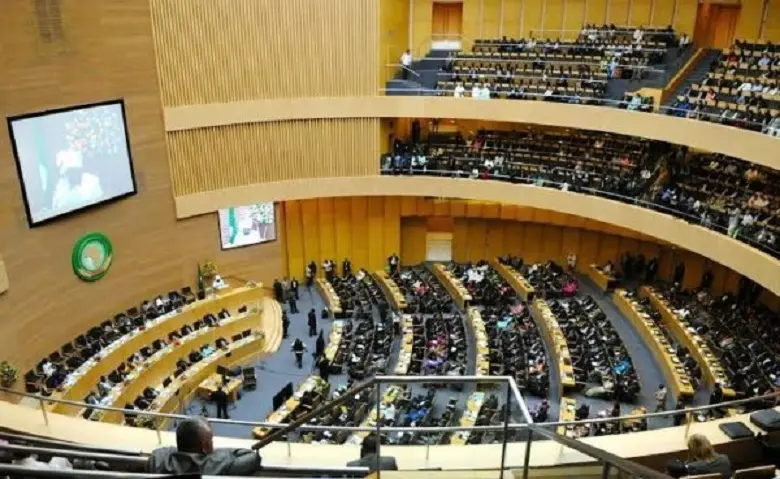The ECOWAS Court has denied a case submitted by two non-governmental organisations (NGOs) attempting to compel Nigeria to support Haiti’s membership application to the African Union (AU).
The applicants were the Incorporated Trustees of the Prince and Princess Charles Offokaja Foundation, Nigeria, and the Prince and Princess Charles Offokaja Foundation, Switzerland.
The two NGOs alleged in the complaint dated ECW/CCJ/APP/54/22, filed on November 24, 2022, that Nigeria failed to facilitate Haiti’s entrance into the AU during its 2016 Summit in Addis Abeba..
They, therefore, contended that Nigeria was liable for violating the right to the development of Haiti and Africans in the diaspora.
Delivering judgement on Friday, a three-member panel of the court, presided over by Justice Edward Asante and read by Justice Dupe Atoki, with Justice Sengu Mohamed Koroma sitting, declined jurisdiction in the suit.
Justice Atoki held that the alleged offence of Nigeria occurred outside the ECOWAS sub-region; hence, the Court was bereft of jurisdiction to entertain the matter and dismissed it outright.
The Judge said: “Although an allegation of human rights violations was invoked, the alleged violation did not occur in any Member State of ECOWAS as required under Article 9(4) of the Supplementary Protocol of the Court.
“It allegedly occurred in Addis-Ababa, Ethiopia, and not within Nigeria’s territory, which is within the jurisdiction of the court.
“While the allegations of human rights recognised by the African Charter are met in the first leg, they fail in the second leg.
“The Court, therefore, declares that it lacks jurisdiction to adjudicate in the matter, and parties are to bear their respective costs.”
Mr Charles Offokaja, the applicants’ counsel, had argued at the hearing of the case that Nigeria’s support would have ensured Haiti’s full participation in the AU’s affairs and leveraged the African Continental Free Trade Area (AfCFTA).
He claimed that the Federal Republic of Nigeria failed to protect the right to development of persons of African descent in the diaspora, particularly those in Caribbean countries, including Haiti.
Offokaja further argued that Nigeria failed to formulate and execute a policy in line with Article 22(2) of the African Charter that would have supported Haiti’s 2016 request for membership of the African Union (AU).
According to him, such membership could have forestalled Haiti’s prevailing economic crisis and enhanced its development, as well as those of other Afro-American individuals and peoples.
He had, therefore, prayed the Court to declare that Nigeria breached Article 22(2) of the African Charter by not formulating and executing a policy to support Haiti’s application for membership in the AU.
Offokaja had also demanded an order of court compelling Nigeria to formulate and execute such policy to support Haiti’s application for consideration at the following Ordinary or Extraordinary Session of the Assembly of the AU.
However, Mrs Maimuna Shiru, the lead counsel for the respondent, Nigeria, had, in a preliminary objection, challenged the competence of the Court to hear a matter relating to Afro-Americans, who are not ECOWAS citizens.
Shiru further argued that the ECOWAS Court was not the African Court on Human and Peoples’ Rights and, therefore, not empowered to determine cases not related to the ECOWAS sub-region.
She stressed that, moreover, the subject matter had been determined by the AU Commission and published in a press release issued in May 2016, adding that the NGOs’ pleadings were not in accordance with Article 9 of the Court’s Protocols.
The respondent’s counsel had, therefore, prayed the Court to dismiss the suit for lacking jurisdiction and any reasonable cause of action against Nigeria



